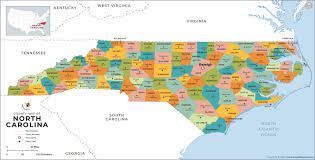The following announcement was written by the North Carolina State Archives:

The Digital Access Branch of the State Archives of North Carolina is pleased to announce the newest collection in the North Carolina Digital Collections, the Revolutionary War Era.
The American War of Independence was the war between Great Britain and the colonists who lived in the American colonies. The fighting lasted from 1775 to 1783 and involved parties from numerous countries. The Revolutionary War typically conjures up images of an assorted group of victimized yet determined white American colonist men fighting against a dictatorial British government. Frustrated with an ever-increasing set of irrational laws and regulations, the American colonists bravely fought back against an obviously tyrannical king. This image of a wearied but determined group of people coming together for a greater good is impressive for history books, but it is merely one perspective of the period.
The Revolutionary War era in North Carolina actually started in 1763 and didn’t end until around 1790 when it joined the union. Feelings of discontent towards the colonial administration started with the War of the Regulation or Regulator Movement. The residents of Anson, Orange, and Granville Counties accused the colonial government of unfair taxation and corruption. The men who called themselves the Regulators protested frequently about the high taxes imposed on them and the heavy-handed methods used to obtain them. Edmund Fanning, in particular, the clerk of the Superior Court of Orange County, was blamed for excessive registration fees and for acquiring numerous tracts of land. Fanning and other royal colonial officials would repeatedly deal with the Regulators’ petitions and protests.
Eventually, the protests turned to riots with physical violence and the colonial government responded with force. The Regulators and Governor William Tryon’s militia fought in the Battle of Alamance on May 16, 1771. The Regulators lost the battle, and the royal colonial government passed the Johnston’s Riot Act. This bill allowed for colonial officials to use military force to stop any perceived acts of rebellion and deem any person labeled a rioter as an outlaw if they didn’t appear in court once summoned. It was written by Samuel Johnston, who is considered a Revolutionary War leader. For more information on the Regulator Movement, check out this blog post.
Clearly, the feelings of discontent towards the royal colonial government started long before the Revolutionary War started. The complaint of excessive taxes was seen in other colonies within British America as well. Between 1763 and 1775, the British Parliament passed an array of laws regulating taxes and trade. The taxes were meant to generate revenue after the British government incurred tremendous debt from fighting in the Seven Years’ War in Europe and the French and Indian War in America simultaneously. Parliament believed it was natural for the American colonists to pay taxes to cover the bills associated with the war. This was logical to them since it was meant to protect them from the French and hostile American Indian nations. Many American colonists disagreed and believed the war was really meant to strengthen the British empire.
You can read a lot more at:
https://ncarchives.wpcomstaging.com/2022/07/03/new-digital-collection-revolutionary-war-era/.